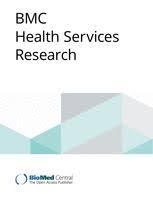People with adverse childhood experiences (ACEs) — traumatic occurrences such as physical, emotional, or sexual abuse, neglect, or household dysfunction — are more likely to have physical and behavioral health needs as adults, which could be a risk factor for increased emergency department (ED) use. This qualitative study reviewed the experiences of adults with high ACE scores who presented at a Canadian ED to identify how a trauma-informed care approach may improve their ED experience.
While some participants described their ED experiences as positive, others reported stigmatization, particularly for individuals who presented with mental health concerns, and experienced a lack of empathy from registration and triage staff, which compounded patients’ anxiety and fear. Although many participants in this study reported feeling safe and felt their needs for communication and understanding were being met, there is room for improvement to better meet the needs of those individuals with high ACE scores, greater emotional dysregulation, mental health conditions, and substance use or pain disorders. Meeting the needs of adults with ACEs who are frequent ED users — and reducing their preventable ED utilization — involves: (1) improving access to timely primary care; (2) enhancing care planning and coordination by incorporating more trauma-informed principles; and (3) training all ED staff on trauma and violence informed care.


